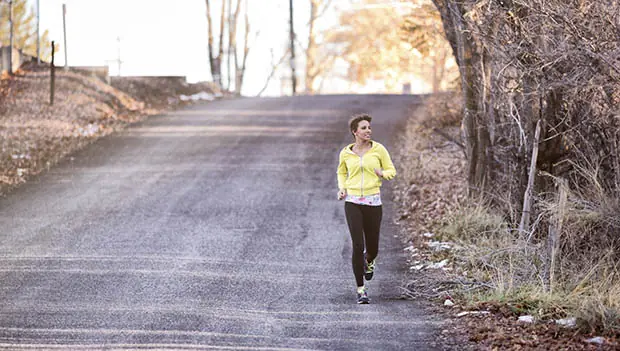
As your runs get longer — more than six miles or longer than an hour — athletes begin to wonder what they should carry. Should you carry water or sports drink? Do you need food? If so, how much and what kind of food?
Nutrition Events Near You
These are all excellent questions. And we have your answers.
Stored Glycogen
Before we begin to explore what to carry on long runs, let's look at a few of pieces of information that will help you understand the recommendations. First, know that most people store 1,300 to 2,000 calories worth of glycogen in the liver and muscles. This glycogen can be converted to glucose to be used during exercise. If you wake up and run first thing in the morning before consuming any calories, you have roughly 1,300 to 2,000 available carbohydrate calories that can be used during exercise.
How Many Calories Do I Burn Running?
There are a number of calories-burned calculators out there, and many of them show wide variations in numbers. Using the calculator from Everyday Health, a 120-pound person burns 599 calories per hour running at a nine-minute-per-mile pace. A 160-pound person running the same time and pace burns 798 calories per hour. How many calories you burn per hour of running depends on your pace and body size.
Making some assumptions and doing more math, if our 160-pound person runs a nine-minute-per-mile pace, he or she can run for around two and a half hours, if running on only stored glycogen. (This is calculated from 2,000 calories of stored glycogen divided by 798 calories per hour.) Of course this is hypothetical, but it gives you a place to begin your thought process.
If you get out of bed and run without consuming any food or liquid calories, you have the stored energy to run for a minimum of 60 to 90 minutes. You do not need to eat a snack before your long morning run.



